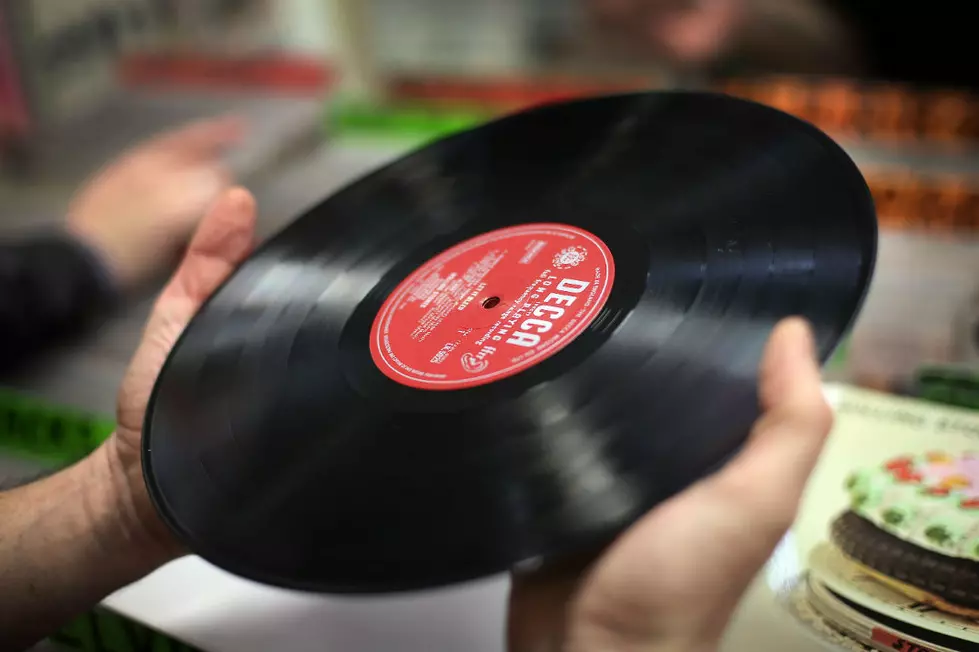
In Defense of Freemium
Since the beginning, Spotify made it clear it was willing to die on the sword of freemium – their method of pairing their paid subscription service with a free, advertising-supported tier. Increasingly, they've found themselves surrounded by critics of the model -- including America's biggest pop star and its largest record labels -- all of whom say it results in unfairly low royalty payments. Through it all, Spotify CEO Daniel Ek has remained steadfast in his dedication to freemium. “The problem [with trying to fight freemium]," a high-level label executive told Billboard in June, "is that Daniel is so evangelical about the process, you can’t change his mind."
Until now, apparently. Because as Spotify goes about negotiating a new round of contracts with major labels, the streaming service, according to reports, is going to start dialing back on freemium. According to a report by Digital Music News, Spotify is planning on making more music in their library unavailable to free-tier users. And while the company says it's still dedicated to freemium, this kind of capitulation feels like a serious encroachment on the company's business model.
The fact that we need freemium as a part of the music landscape is a sad reality of today's music industry. But we do need it.
It's going to be difficult, if not impossible, for streaming to hit a critical mass of usership without the model. According to a study published by Nielsen at the beginning of this year, the average American spends $53 on music in a year, including streaming service subscriptions, CDs, digital downloads, and niche products like vinyl and cassettes (but not live events and merch). Only $3 of that $53 goes to streaming services.
Meanwhile, streaming services are asking listeners to pay $120 a year, and hoping that enough of them do to compensate for declining revenues in every other segment of the industry (except that small vinyl segment). Freemium critics want listeners to pay more than double what they're already paying for music in a year in order to stream music on demand, when they can listen to the radio or browse YouTube for free.
Listeners are mostly going to stick to those free methods and could even turn to pirating music if they can't use on-demand services like Spotify for free. To a certain extent, we have Spotify, along with other free, legal streaming services, to thank for the decrease in music piracy in recent years. In Sweden, Norway and the Netherlands -- countries where Spotify launched a few years earlier than it did in the U.S. -- data show a correlation between increased use of the app and a decrease in piracy. One argument for keeping the freemium tier, then -- an argument Spotify has made themselves -- is that whatever small amounts of money artists make from plays on the free tier is better than outright theft of their music.
And, as much as it goes against the conventional wisdom to say so, freemium might actually be helping artists in the long run. Perhaps not so much for Taylor Swift, whose star power drove up enough demand for 1989 that millions of listeners were willing to pay for it if they couldn't hear it for free. But most artists can't compel listeners who have never heard their music to pay for it. Spotify allows these artists to be heard, and while the payments they receive per play are indeed minuscule, the payoff comes when the increased exposure allows them to play to larger audiences when they tour, which is where bands make the most money anyway.
But while major labels are primarily worried about making Spotify a profitable venture for themselves, Swift's main argument against Spotify's freemium model is more philosophical. By allowing listeners to hear her music for free, she says, Spotify is devaluing it -- communicating to its users and to the world that music has no quantifiable worth. But music has been worthless in the monetary sense since the advent of Napster. Nothing can strip music of its emotional and communicative power, but, unfortunately, the internet stripped it of its ability to generate income on its own years ago.
As depressing of a situation as it is, the time for trying to get users to pay for music on a large-scale basis the way they once did is long past. Instead, players in the fast-growing streaming industry should allow listeners to hear and explore music for free, scraping what revenues they can from advertising and catering to more involved listeners with a paid tier. Sadly, in this devolved industry, they have little other choice. And it's incumbent on the artists and labels, too, to find new ways to generate revenue around their music.
More From Diffuser.fm









